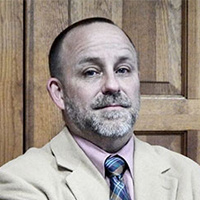Hatfield Misdemeanor Lawyer, Pennsylvania
Sponsored Law Firm
-
 x
x

Click For More Info:
-
Christofer C. Johnson, Esq.
1500 Walnut Street Suite 2000 Philadelphia, PA 19102» view mapCriminal Defense Experienced Criminal Defense Lawyer
Christofer C. Johnson, Esq. has a track record of successful case outcomes and provides legal counsel for a reasonable price.
800-694-1771
Lauren A Wimmer
✓ VERIFIEDAttorney Lauren A. Wimmer has represented individuals charged in both state and federal court with charges ranging from misdemeanors like drug and var... (more)
Paul M. Aaroe
✓ VERIFIEDPaul M. Aaroe, II, Esquire. Over 30 years of experience. Personal and professional services. Son of Superior Court Judge Paul Aaroe. Dedicated ... (more)
Zak Taylor Goldstein
✓ VERIFIEDZak Goldstein is a Philadelphia criminal defense and civil rights attorney. Zak Goldstein has experience trying hundreds of cases before judges and ju... (more)
Andrea E. Mertz
FREE CONSULTATION
CONTACTArik T. Benari
FREE CONSULTATION
CONTACT Christofer Johnson Philadelphia, PA
Christofer Johnson Philadelphia, PA AboutChristofer C. Johnson, Esq.
AboutChristofer C. Johnson, Esq. Practice AreasExpertise
Practice AreasExpertise




